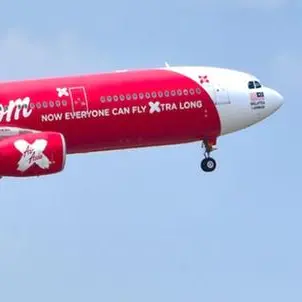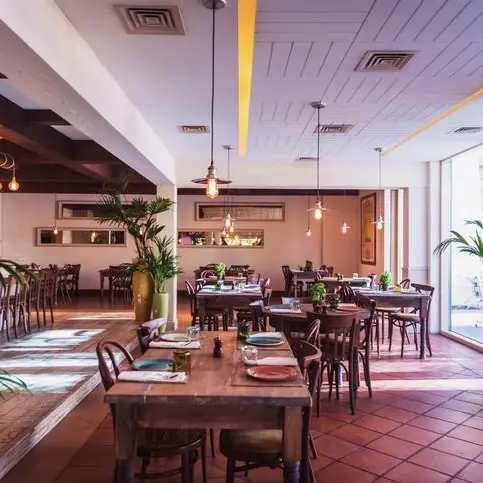SULAIMANIYA, Iraq - Some Kurdish leaders describe Monday's referendum on independence as a historic chance for the ethnic group to shape its own destiny after decades of oppression. Yet there was little enthusiasm for voting in the city of Sulaimaniya.
No long queues snaked around buildings in early voting as one might expect of a people who have dreamed of their own nation all their lives.
Only about 30 people were casting their ballots nearly two hours after polling stations opened, and much of Sulaimaniya was subdued.
The sharp contrast with celebrations in the other major Kurdish city of Erbil highlighted divisions between the main political parties, suggesting problems ahead for the administration of any future state.
Some officials in the Patriotic Union of Kurdistan (PUK), based in Sulaimaniya, have cautioned that the vote could invite trouble from Turkey and Iran and a referendum should be held at a more appropriate time.
Those neighbouring countries fear independence will encourage their own restive Kurdish populations to press for change. The Baghdad government says the vote is unconstitutional.
ANGRY NEIGHBOURS
Iran banned flights to and from Kurdistan on Sunday, while Baghdad asked foreign companies to stop oil trading with Kurdistan and demanded that the KRG hand over control of its international airports and border posts with Iran, Turkey and Syria.
Tensions are high between Kurdish fighters and Iranian-backed Shi'ite militias.
The Kurdistan Democratic Party (KDP) in Erbil argues that it is time for the Kurds to run their own affairs after many years of persecution at the hands of Saddam Hussein and others.
Polling stations opened at 8:00 a.m. (0500 GMT) and should close at 6:00 p.m. Final results are expected within 72 hours.
The vote, expected to deliver a comfortable "yes" for independence, is not binding and is meant to give Masoud Barzani's KDP a mandate to negotiate secession of the oil producing region with Baghdad and neighbouring states.
There were few referendum banners in Sulaimaniya urging people to vote. Those who did turn out said they would back an independence from Iraq.
"I say yes, yes, yes to a Kurdish state. I am from now on the son of a Kurdish state," said Dirshad Ahmed, a writer.
Like others who voted, he preferred to enjoy the moment instead of asking tough questions about internal Kurdish divisions and hostility to the vote from regional powers and the Baghdad government.
Kurdistan has long been plagued by political disunity between Barzani's KDP and decades-old rival Patriotic Union of Kurdistan (PUK), headed by Jalal Talabani. It was most recently exacerbated by the extension of Barzani's term.
The two sides fought a civil war during the 1990s.
Some Sulaimaniya residents kept their distance from the referendum, preferring caution.
"I will not vote. The referendum is not good. It could be dangerous because of the threat from Turkey and Iran," said shop owner Ali Ahmed.
The Kurds began moving towards semi-autonomy after a U.S.-led invasion toppled Saddam Hussein, ending what some called genocide against the ethnic group.
STABILITY ELUSIVE
But friction with Baghdad over oil and other issues led the Kurds to press harder for independence in a region that has been relatively stable compared to other parts of the country where sectarian blood spilled between Sunnis and Shi'ites.
Iraq has been struggling to come up with a formula for stability since the fall of Saddam.
Some Iraqis have suggested the country should be split into Kurdish, Sunni and Shi'ite regions as a way of managing sectarian and ethnic tensions.
Kamran Ahmed, a university economics professor, said at a polling station: "We will never again surrender to any Arab leader in Iraq."
He had high hopes for a Kurdish state and said Iraq could be broken up, the kind of talk that infuriates regional powers and Baghdad.
"If there is a Sunni region then that's fine and the same goes for Shi'ites. If our experiment is successful it could benefit the Sunnis and Shi'ites," he said.
At another polling station, Kurdish security guard Sarbast Saeed urged the Shi'ite-led Baghdad government to rein in militias instead of complaining about a Kurdish state.
"They have no right to attack us when they let the militias attack Sunnis. Give the Sunnis their own state," he said.
It's that kind of bitterness that all sides will face as the Kurds work towards a viable state.
(Writing by Michael Georgy; editing by Giles Elgood) ((michael.georgy@thomsonreuters.com;)(M)(+2010 271 00098)(O)(+20 225783290; Reuters Messaging: michael.georgy.thomsonreuters.com@reuters.net))




















